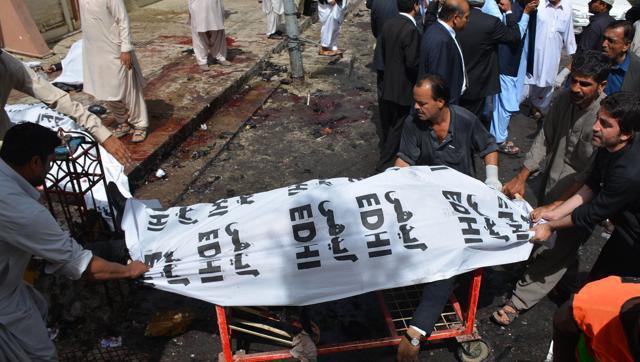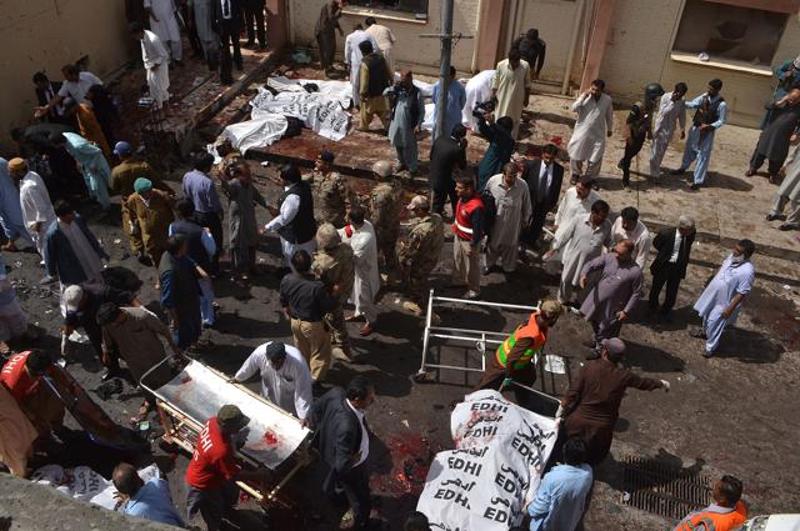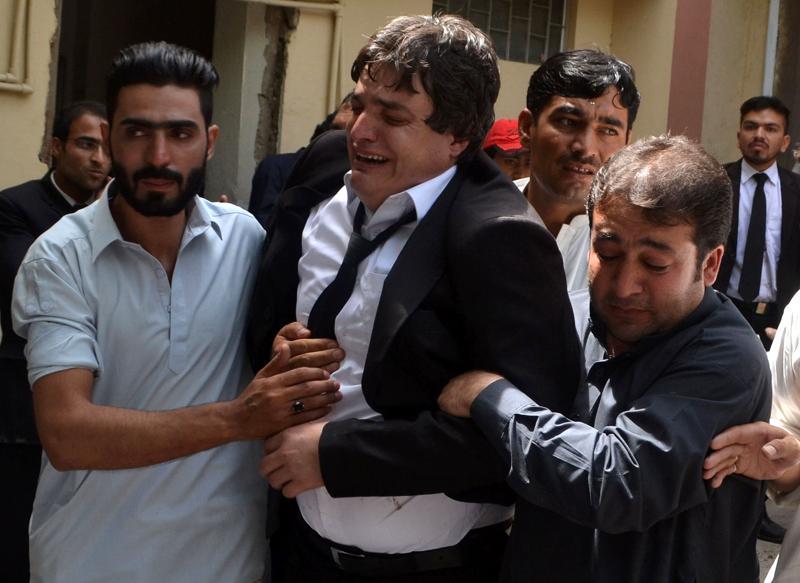Miss Alone
Prime VIP

A suicide bomber detonated his explosive vest amid a crowd of mourners at a hospital in the southwestern Pakistani city of Quetta on Monday, killing 70 people and injuring nearly 100 more in one of the deadliest terror attacks in recent years.
A branch of the Islamic State claimed responsibility for the bombing, according to Newsweek Pakistan. In a phone call to local journalists, a spokesman for IS Khorasan Province warned of similar attacks across Pakistan, saying the strike in Quetta was the “first of many”.
This would be the first attack carried out by the IS within Pakistan since its chapter for Khorasan, an area encompassing Afghanistan, Pakistan and parts of India, was formed in January last year. The IS earlier claimed an attack on Pakistan’s consulate in the Afghan city of Jalalabad in January this year that killed seven people.
The blast, followed by firing, occurred as a crowd of some 200 people, mostly lawyers and journalists, gathered at Quetta’s Civil Hospital to accompany the body of Balochistan Bar Association president Bilal Anwar Kasi, who was shot dead by unidentified gunmen while on his way to work.
The bomber blew himself up near the emergency services ward and the mourners appeared to be the target, provincial government spokesperson Anwarul Haq Kakar said. “It seems it was a pre-planned attack,” he added.
Two journalists – Dawn News cameraman Mahmood Khan and Shahzad Khan, a cameraman associated with Aaj TV – were killed by the blast. Several lawyers, including a former president of the local bar association, were injured.
Television footage showed scenes of chaos, with panicked people fleeing through debris as smoke filled the hospital corridors. The footage also showed bodies strewn on the ground, some still smoking, amid pools of blood and shattered glass.

Many of the dead were wearing the trademark black suits and ties of lawyers. A large burn mark against white brick appeared to indicate where the bomb went off.
Police cordoned off the Civil Hospital after the blast and the military was deployed in and around Quetta’s hospitals.
Balochistan chief minister Sanaullah Zehri condemned the attack and told the media that India’s Research and Analysis Wing (RAW) was behind terror incidents in Quetta.
“This was a security lapse,” provincial home minister Sarfaraz Bugti said, adding he was personally investigating the attack. He said the hospital had not received any threats in the past.
Prime Minister Nawaz Sharif strongly condemned the blast and expressed his “deep grief and anguish over the loss of precious human lives”. Army chief Gen Raheel Sharif travelled to Quetta and visited the injured in hospital.
The toll made the attack the second deadliest in Pakistan this year, after a bombing in a crowded park in Lahore over Easter killed 75.
Abdul Rehman, the director of the Civil Hospital, said 92 injured people were being treated at the state-run hospital. Police official Zahoor Ahmed Afridi said most of the victims were lawyers.
Ali Zafar, the top leader of Pakistan’s main lawyers’ association, denounced the bombing as “an attack on justice”. He said lawyers across the country will observe three days of mourning and stay away from court appointments to express solidarity with those killed.
“There are many wounded, so the death toll could rise,” said Rehmat Saleh Baloch, Balochistan’s health minister.

Monday’s bombing can be traced to an earlier attack on lawyer Jahanzeb Alvi, who was shot dead by unidentified men in Quetta on August 3. Kasi had strongly condemned Alvi’s murder and announced a two-day boycott of courts proceedings.
Balochistan, which borders Iran and Afghanistan, has major oil and gas resources but is afflicted by Islamist militancy, sectarian violence between Sunnis and Shias and a long-running separatist insurgency.
Pakistan’s largest province has experienced incidents of violence and targeted killings for more than a decade. More than 1,400 incidents targeting the Shia and Hazara minorities have been recorded in the province during the past 15 years.
Quetta has long been regarded as a base for the Afghan Taliban, whose leadership regularly held meetings there in the past. In May, Afghan Taliban leader Mullah Akhtar Mansour was killed by a US drone strike while travelling to Quetta from the border with Iran.
